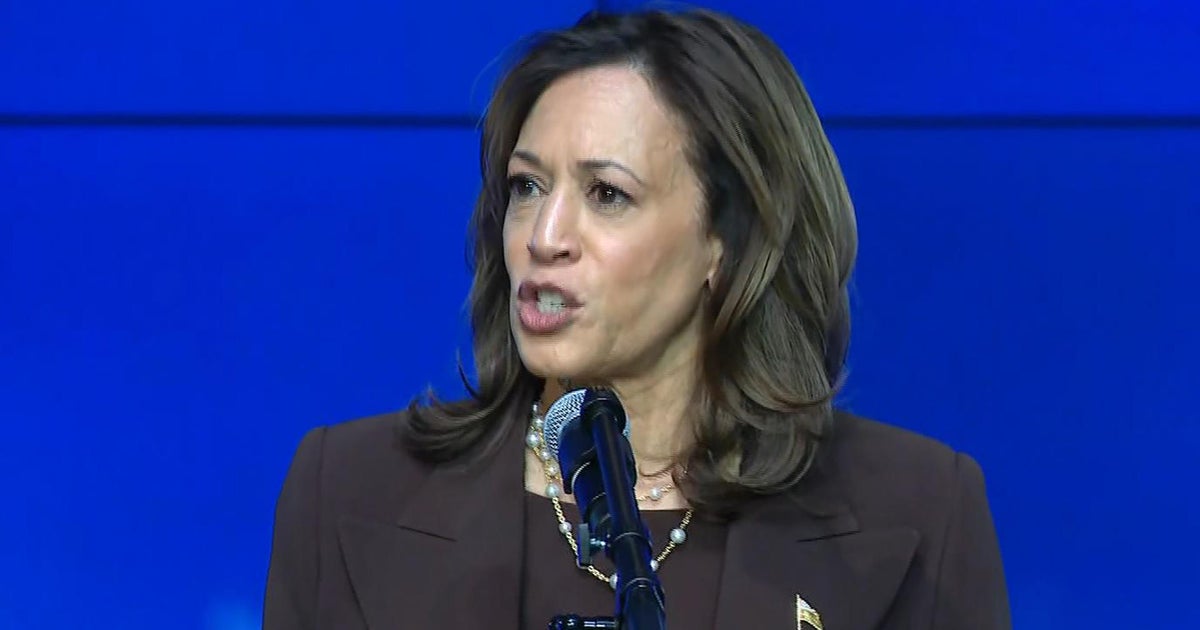Star Tribune
Minnesota autism providers under investigation, lawmakers eye ‘guardrails’

Investigators are examining potential Medicaid fraud among Minnesota autism services, and state lawmakers say they will consider licensing the providers, whose numbers have increased dramatically across the state.
The Minnesota Department of Human Services has 15 active investigations into organizations or individuals providing certain autism services and has closed 10 other cases, the agency told the Star Tribune. The investigations were first reported by the the Reformer, which wrote last month that the FBI is looking into fraud by autism service providers.
Gov. Tim Walz said Wednesday that he’s “not aware” of an FBI investigation, but is concerned about the allegations of fraud.
Officials with DHS were not available for an interview Wednesday, but the department issued a statement saying: “Early identification and access to services are life-changing for people with autism — especially children. That’s why it’s so important to make sure every dollar spent on services is accounted for.”
The state created a medical benefit about a decade ago for young people with autism spectrum disorder and related conditions. The number of people receiving the early intensive developmental and behavioral intervention benefit and the providers getting paid for the services has climbed sharply in recent years, as have the dollars flowing to those providers.
The providers offer therapy and services. The benefit program is intended to educate and support families of people with autism, help individuals be more independent and participate in their schools and communities and improve their lives long-term.
There were 328 related providers in the state last year, up from 41 in 2018, according to DHS data. The amount the providers were paid has also spiked during that time, from $6 million to nearly $192 million.
The state has withheld payments to seven autism service provider organizations since 2018, according to DHS. Five of those were withheld for credible fraud allegations. DHS said another payment was denied because the provider failed to allow DHS access to records and one was withheld “to protect the public welfare and in the best interests of Minnesota Health Care Programs.”
“DHS took action to withhold payments when there were credible allegations of fraud and forwarded cases for law enforcement investigation or prosecution when appropriate,” the DHS statement said. “These investigations follow a national trend of identifying fraud in Medicaid-funded autism services.”
Future license requirements?
The hundreds of autism-related service providers do not need a state license to provide the benefit services. But last year lawmakers tasked DHS with reviewing the service and evaluating whether they needed to license the organizations or make other regulatory changes.
“There’s a need for service and the demand for service is high. But the question is do we need to put guardrails?” said House Human Services Finance Chairman Mohamud Noor, DFL-Minneapolis. He said they are looking into that question for both autism centers and telehealth services, to ensure “there is proper care for the most vulnerable children in our state.”
The state should be licensing autism centers and in-home providers, who offer the same services in different settings, said Rep. Kim Hicks, DFL-Rochester, who has previously worked as the autism policy lead at the Department of Human Services.
“It’s really important that our programs be something that works to support kids and families and doesn’t cause harm. And so to do that I think we need more oversight and regulation, particularly when we’re talking about licensing of centers,” she said.
Legislators agreed this year to license behavior analysts who provide certain therapies and it makes sense to next look at licensing autism-based centers, said Senate Human Services Chairman John Hoffman, DFL-Champlin.
“It’ll be part of our hearing structure,” Hoffman said, if he continues to serve as committee chair. “It’s worthy of a conversation. Let’s get the autism experts at the table and let’s talk about it.”
Hoffman said he is not surprised by the growth in the autism program, which he believes is fairly consistent with other new DHS programs. Prior to 2018, Hoffman said, autism support services were lacking in the state.
One in 34 children in Minnesota was identified as being on the autism spectrum, according to 2020 data from the Minnesota-Autism and Developmental Disabilities Monitoring Network. That’s higher than the national rate.
A spokeswoman for Walz said their office will “definitely take a look” at whatever licensing requirements lawmakers propose.
Concerns about fraud
The concerns about autism providers misusing federal dollars come as another state agency, the Minnesota Department of Education, has been in the spotlight for failing to safeguard against fraud in the Feeding Our Future case. Seventy people have been charged in what prosecutors have said was a massive scheme to steal from federal food programs.
DHS said it has systems to identify fraud, waste and abuse and acts swiftly when they are suspected. The agency’s Office of Inspector General can investigate suspected fraud and stop providers’ ability to bill for services, and forward fraud findings to the Attorney General’s Office for prosecution.
Asked about other Medicaid program cases, a DHS spokesman said the agency has 548 total open investigations.
Last month, the Attorney General’s Office charged five people in two investigations — one related to home care services, another to medical transportation — with defrauding Minnesota’s Medicaid programs out of more than $10 million.
The Attorney General’s Medicaid Fraud Control Unit has had 261 criminal convictions in cases since October 2018, and nearly $26.5 million in criminal restitution has been ordered as a result, according to data from the Attorney General’s Office.
In the case of children receiving autism services, DHS officials said their Disability Services Division evaluates a child’s progress with treatment plans to ensure services should continue to be authorized. The agency said it instructs the managed care organizations it works with to follow similar authorization protocols. Its Office of Inspector General also does complaint-based investigations and audits to check compliance with Medical Assistance requirements.
Staff writer Ryan Faircloth contributed to this report.
Star Tribune
Two killed in second Minneapolis encampment shooting of weekend

Two men are dead and one woman was injured in a shooting at a homeless encampment in south Minneapolis on Sunday afternoon, police said. It was the second shooting at a Minneapolis encampment this weekend.
At about 2:20 p.m. Sunday, police responded to a reported shooting in the 4400 block of Snelling Avenue near the railroad tracks at the small encampment between Snelling and Hiawatha avenues. At the scene, officers found two men with fatal gunshot wounds, said Sgt. Garrett Parten Minneapolis Police spokesman. Responders rendered aid, but both men died at the scene.
A woman was found at the scene with life-threatening injuries and was taken to a local hospital where she was being treated Sunday night, he said. Police have yet to say whether the three were living at the encampment.
Officers detained three people, who Parten said have since been released after police found they were not believed to be involved in the shooting. No suspects had been identified as of 6:30 p.m. Sunday.
The shooting is the second at a southside homeless encampment this weekend. One man died and two were critically injured early Saturday at an encampment shooting near E. 21st Street and 15th Avenue S. On Sunday, the man was identified as Deven Leonard Caston, 31, according to the Hennepin County Medical Examiner’s Office.
“We don’t know if there’s a connection between this homeless encampment shooting and the one that occurred yesterday,” Parten said on Sunday. “That is a consideration of the investigation. We can’t rule it out.”
Ward 12 Council Member Aurin Chowdhury, who represents the area and lives nearby, was at the site of the shooting Sunday afternoon. She said officials need information about what happened to better understand how to address situations like this long-term.
“This is an absolute tragedy, and this type of violence should never occur within our city,” she said. “It really makes me think about how we need to look at this more systemically and not just take a whack-a-mole approach and expect the problem to go away.
Star Tribune
Walz plays Madden video game with AOC on Twitch

During Sunday’s Twitch stream, Walz and Ocasio-Cortez played Madden while discussing making homebuying more accessible, building affordable housing, eliminating student loan debt and raising the federal minimum wage.
After the match, Walz showed off his Sega skills in a round of “Crazy Taxi,” the Y2K-era racing game where gamers play as a taxi driver picking up passengers and taking them to their destination for cash.
Walz called himself a “first-generation gamer” and recalled playing “Crazy Taxi” when he bought a Sega Dreamcast. He also mentioned the Minnesota Star Tribune’s coverage of how his old game console was sold and ended up with a Plymouth resident, who still has it.
Afterward, Walz and Ocasio-Cortez watched a short clip of Trump denying on Rogan’s podcast that he lost the 2020 presidential election. Democrat Joe Biden won that year.
Ocasio-Cortez during the livestream also showed viewers her farm on the cozy, indie game Stardew Valley. Walz said the game reminded him of Minnesota: “You’ve got mining,” he said. “You’ve got agriculture. You’ve got snow.”
Before Walz headed out to a rally in Nevada, he pleaded with viewers to vote. More than 12,000 viewers tuned into the livestream on Ocasio-Cortez’s Twitch channel. More watched from Harris’ channel.
Star Tribune
Trump’s Madison Square Garden event turns into a rally with crude and racist insults

”Hey guys, they’re now scrambling and trying to call us Nazis and fascists,” said Alina Habba, one of Trump’s attorneys, who draped a sparkly ”MAGA” jacket over the lectern as she spoke. ”And you know what they’re claiming, guys? It’s very scary. They’re claiming we’re going to go after them and try and put them in jail. Well, ain’t that rich?”
Declared Hogan in his characteristic raspy growl: ”I don’t see no stinkin’ Nazis in here.”
Trump has denounced the four criminal indictments brought against him as politically motivated. He has ramped up his denunciations in recent weeks of ”enemies from within,” naming domestic political rivals, and suggested he would use the military to go after them. Harris, in turn, has called Trump a ”fascist.”
The arena was full hours before Trump was scheduled to speak. Outside the arena, the sidewalks were overflowing with Trump supporters in red ”Make America Great Again” hats. There was a heavy security presence. Streets were blocked off and access to Penn Station was restricted.
In the crowd was Philip D’Agostino, a longtime Trump backer from Queens, the borough where Trump grew up. The 64-year-old said it was appropriate for Trump to be speaking at a place bills itself as ”the world’s most famous arena.”
”It just goes to show ya that he has a bigger following of any man that has ever lived,” D’Agostino said.




